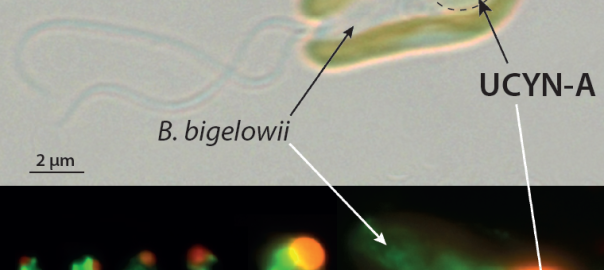Alexandra E. Jones-Kellett, Jesse C. McNichol, Yubin Raut, Kelsy R. Cain, François Ribalet, E. Virginia Armbrust, Michael J. Follows, and Jed A. Fuhrman (2024), Amplicon Sequencing with Internal Standards Yields Accurate Picocyanobacteria Cell Abundances as Validated with Flow Cytometry, ISME Communications, doi: 10.1093/ismeco/ycae115 Continue reading Amplicon Sequencing with Internal Standards Yields Accurate Picocyanobacteria Cell Abundances as Validated with Flow Cytometry
Omta, A.W., Follett, C.L., Lauderdale, J.M. et al. (2024), Carbon isotope budget indicates biological disequilibrium dominated ocean carbon storage at the Last Glacial Maximum, Nat. Commun., doi: 10.1038/s41467-024-52360-z Continue reading Carbon isotope budget indicates biological disequilibrium dominated ocean carbon storage at the Last Glacial Maximum

Congratulations Dr Jones-Kellett
Congratulations, Dr Alexandra Jones-Kellett! Continue reading Congratulations Dr Jones-Kellett

Congratulations Dr Krinos
Congratulations, Dr Arianna Krinos! Continue reading Congratulations Dr Krinos
Sher, D., Segrè, D. & Follows, M.J. (2024), Quantitative principles of microbial metabolism shared across scales, Nat. Microbiol., doi: 10.1038/s41564-024-01764-0 Continue reading Quantitative principles of microbial metabolism shared across scales

Study: Weaker ocean circulation could enhance CO2 buildup in the atmosphere
New findings challenge current thinking on the ocean’s role in storing carbon. Continue reading Study: Weaker ocean circulation could enhance CO2 buildup in the atmosphere
Omta, Anne Willem, Justin D. Liefer, Zoe V. Finkel, Andrew J. Irwin, Daniel Sher, Michael J. Follows (2024), A model of time-dependent macromolecular and elemental composition of phytoplankton, Journal of Theoretical Biology, doi: 10.1016/j.jtbi.2024.111883
Continue reading A model of time-dependent macromolecular and elemental composition of phytoplankton
Stephanie Dutkiewicz, Christopher L. Follett, Michael J. Follows, Fernanda Henderikx-Freitas, Francois Ribalet, Mary R. Gradoville, Sacha N. Coesel, Hanna Farnelid, Zoe V. Finkel, Andrew J. Irwin, Oliver Jahn, David M. Karl, Jann Paul Mattern, Angelicque E. White, Jonathan P. Zehr, Virginia Armbrust (2024), Multiple biotic interactions establish phytoplankton community structure across environmental gradients, Limnology and Oceanography, doi: 10.1002/lno.12555 Continue reading Multiple biotic interactions establish phytoplankton community structure across environmental gradients

A Marine Symbiosis Allows a Better Understanding of Our Cells Evolution
Human cells, as well as cells of animals, plants, fungi, and other eukaryotic organisms, originally emerged hundreds of millions of years ago through the symbiotic association of some primitive bacteria that, until then, had lived independently. This represented an unprecedented leap in the complexity of life, where some bacteria, after having resided within cells for a long time, eventually transitioned into becoming organelles of these cells. This transition allowed for the compartmentalization and control of bacterial-derived functions within the eukaryotic cell. CBIOMES Mick Follows contributes to a new paper in the journal Cell.
Continue reading A Marine Symbiosis Allows a Better Understanding of Our Cells Evolution
Alexandra Jones-Kellett and Michael J. Follows (2024), A Lagrangian coherent eddy atlas for biogeochemical applications in the North Pacific Subtropical Gyre, Earth System Science Data, doi: 10.5194/essd-16-1475-2024 Continue reading A Lagrangian coherent eddy atlas for biogeochemical applications in the North Pacific Subtropical Gyre